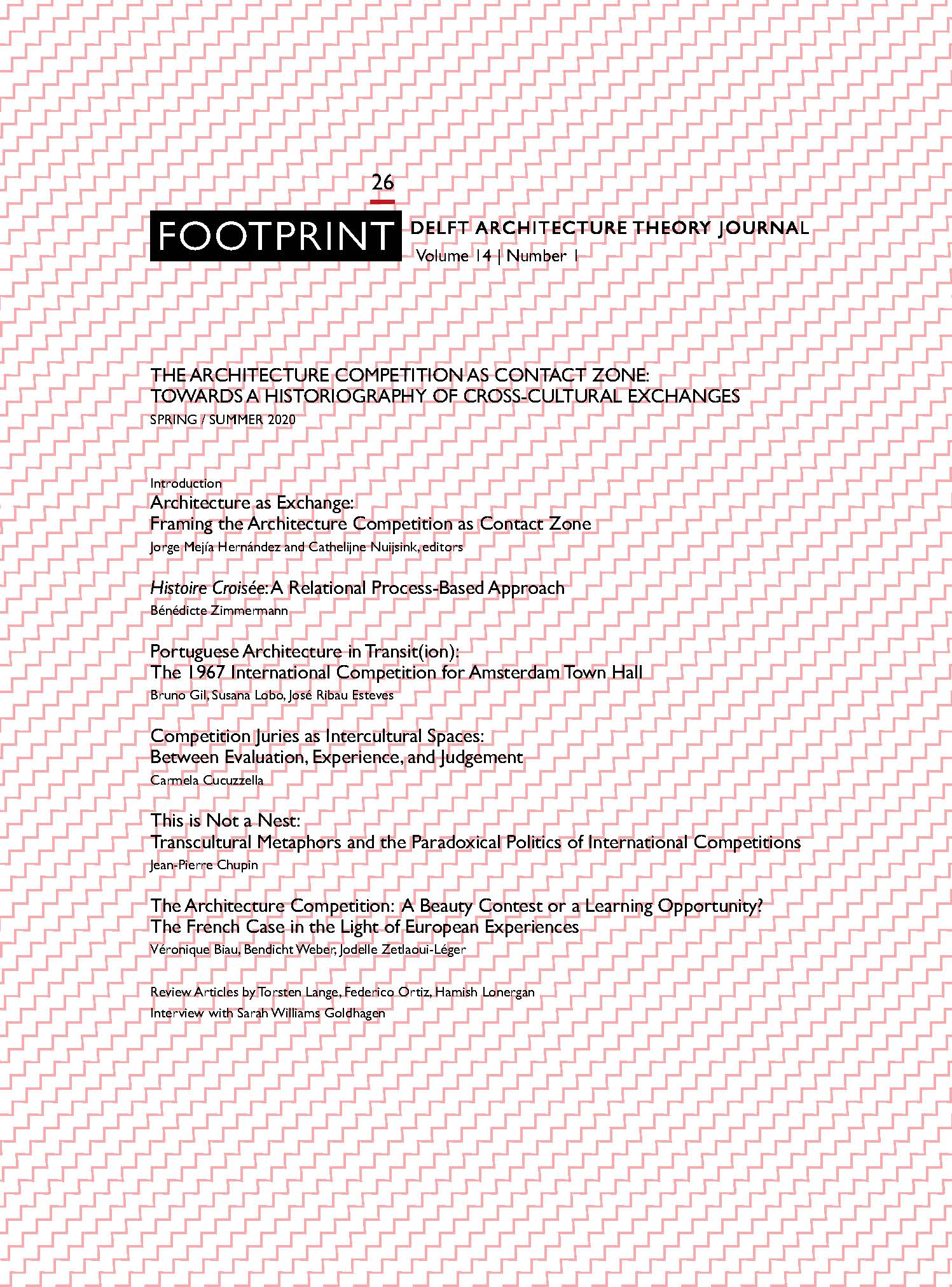Histoire Croisée
A Relational Process-based Approach
DOI:
https://doi.org/10.7480/footprint.14.1.4513Abstract
Globalization makes understanding worldmaking processes a crucial issue. During the Cold War the social sciences mainly addressed this issue through comparative studies which mirrored the logic of the world-historical confrontation. In this respect 1989 fostered not only a political turn but an epistemological one. The new political situation fueled the development of approaches dedicated to the study of relations and interdependencies between different parts of the world.
Like entangled, shared or connected histories, Histoire croisée takes a cross-border approach.Their common feature is shifting the analysis from comparative approaches centered on territorial entities to the relationships that flow through and the interactions which constitute them, as well as moving away from approaches solely focused on state relationships. Dedicated to the study of intersecting processes in various settings, Histoire croisée is driven by an empirical, methodological and epistemological shift that involves redefining the object of research.
References
Conrad, Sebastian, 2016, What is Global History? Princeton: Princeton University Press.
Elias, Norbert, 1971, Was ist Soziology? Weinheim: Juventa.
Espagne Michel and Werner Michael, 1987, “La construction d’une référence culturelle allemande en France, genèse et histoire,” Annales ESC 42-4.
Kalberg Stephen, 1994, Max Weber‘s Comparative Historical Sociology. Chicago: University of Chicago Press.
Knorr-Cetina Karin, 1981, “The Micro-Sociological Challenge of Macro-Sociology: Toward a Reconstruction of Social Theory and Methodology,” eds. Karin Knorr-Cetina and Aaron V. Cicourel, Advances in Social Theory and Methodology: Toward an Integration of Micro- and Macrosociologies. London: Routledge.
Löw Martina, 2001, Raumsoziologie, Frankfurt am Main, Suhrkamp.
Revel Jacques (ed.), 1996, Jeux d’échelles. La micro-analyse à l’expérience, Gallimard et Le Seuil, col. Hautes Etudes.
Stanziani Alessandro, 2018, Eurocentrism and the Politics of Global History. London: Palgrave MacMillan.
Weber Max, 1958, Wirtschaftsgeschichte: Abriss der universalen Sozial- und Wirtschaftsgeschichte. Berlin: Duncker & Humblot.
Weber Max, 2002 (1922), Wirtschaft und Gesellschaft. Grundriss der verstehenden Soziologie, Tübingen: Mohr Siebeck.
Werner Michael and Zimmermann Bénédicte, 2006, “Beyond Comparison: Histoire croisée and the Challenge of Reflexivity,” History and Theory 45, no. 1.
Wimmer Andreas, Schiller Nina G., 2002, “Methodological Nationalism and Beyond: Nation-State Building, Migration and the Social Sciences,” Global Networks 2, no. 4.
Webster’s Ninth New Collegiate Dictionary, 1983, Springfield, Mass., U.S.A.
Downloads
Published
Issue
Section
License
- Authors retain copyright and grant the journal right of first publication with the work simultaneously licensed under a Creative Commons Attribution License that allows others to share the work with an acknowledgement of the work's authorship and initial publication in this journal.
- Authors are able to enter into separate, additional contractual arrangements for the non-exclusive distribution of the journal's published version of the work (e.g., post it to an institutional repository or publish it in a book), with an acknowledgement of its initial publication in this journal.





